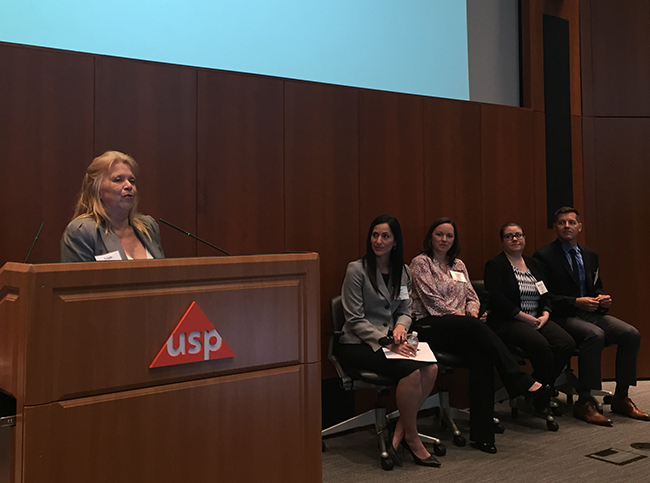Your Supply Chain in 2019: Top Considerations

Last week industry gathered for the Food Safety Supply Chain conference at USP in Rockville, MD. The following are some quick highlights of insights they shared.
Most Common Form 483 Observations
Following FSVP inspections, the most common Form 483 observation was a company’s failure to develop an FSVP. From FY 2017 to present, the observation was cited 552 times, outweighing any other observation and underscoring the need for an educational component. – AJ Seaborn, supervisory consumer safety officer, division of import operations, ORA, FDA
Top Citations for FY 2018
- Hazard analysis (when a facility is not identifying a hazard that requires a preventive control)
- Lack of a food safety plan. “There’s still work to be done on the education and outreach on this one.”
- Equipment and utensils (GMP deficiency)
- Allergen controls monitoring
- Sanitation control verification procedures
- Personnel (usually, this is related to a repeated issue)
– Priya Rathnam, supervisory consumer safety officer, CFSAN, FDA
Critical Supplier Questions Must Be Asked
- How do you choose and approve your suppliers?
- What must be done to ensure that we aren’t receiving hazards from suppliers?
- What requirements must be defined?
- Does every supplier need to be audited?
- Should we treat all suppliers equally? (No, it depends on their risk profile)
- How do we ensure that our program is effective?
- When working with suppliers, it’s important that your decisions are reproducible and that you apply the same risk methodology across the board. – Erika Miller, food safety specialist, D.L. Newslow & Associates, Inc.
“Before you can do anything to transform your business, you have to have visibility in your supply chain.” – George Dyche, senior director, innovations & solutions, Avery Dennison
“’Compliance’ should be replaced in industry with ‘commitment’…when you’re committed, compliance will follow.” – Felix Amiri, food sector chair, Global Coalition for Sustained Excellence in Food & Health Protection (GCSE-FHP)
Putting the “P” in CAPA = Getting out in front of issues before they happen. “Don’t wait for the consumer to get sick… if you have a recall, it means you haven’t done your work on the CAPA side.” – Andrew Kennedy, director, Global Traceability Center, IFT
On critical success factors to establish a traceability program: Technology will never fix a company’s data quality or process issues. If you don’t already have it defined, you won’t get there. And after you understand the KPIs and goals, don’t give up. This doesn’t happen overnight. Engage your leadership, because the vision has to be from the top for others to also allocate the time and effort. “It’s a journey, not a destination. If you take your eyes off data quality, data quality goes down.” – Lucy Angarita, director, supply chain traceability, IPC/Subway
In 2018, 47% of recalls were allergen related, and this rate has increased. “People still don’t get [allergen labeling]”. – Barry Parsons, senior consultant, PTI Consulting Group (Division of Paster Training)
On the significance of teaching truck drivers the importance of food safety risks: “They are part of our supply chain, and we need to incorporate them. It shouldn’t be out of sight, out of mind.” – Holly Mockus, senior industry analyst, Alchemy